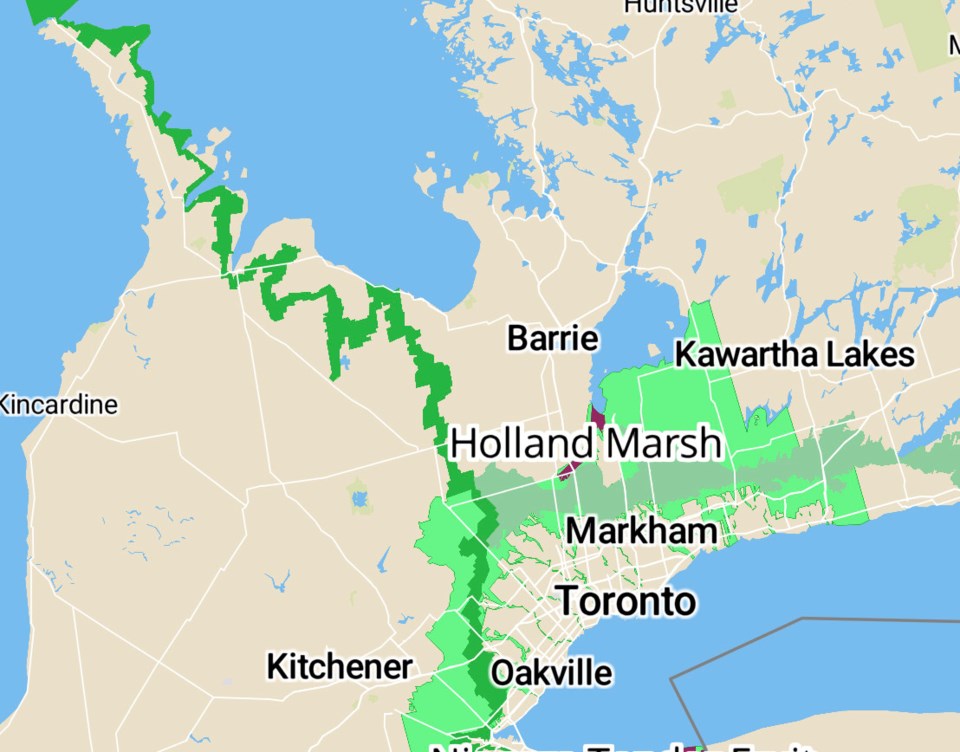CollingwoodToday welcomes letters to the editor at [email protected]. Please include your daytime phone number and address (for verification of authorship, not publication). The following is a letter to the editor and an open letter to Steven Guilbeault, federal minister of environment and climate change.
*************************
Dear Minister Guilbeault,
As Canada hosts an international conference on biodiversity, we thought it would be a good time to highlight how the Government of Canada can make good on its various laudable commitments to protecting biodiversity and our freshwaters.
Lake Simcoe is the most intensively studied lake in Canada. It has its own protective legislation, Ontario’s Lake Simcoe Protection Act, 2008. But nothing seems to stop the relentless crush of sprawl on our farmlands, forests, and now under Ontario’s recently passed Bill 23, our wetlands and waterways. Lake Simcoe sits in one of Canada’s unlucky ecoregions in crisis.
Canada can stand by its commitment to protect natural areas in southern Ontario by taking the following actions:
- Ensure that no federally collected taxpayer money goes into reimbursements related to Bill 23’s erasure of municipalities’ ability to collect development cost charges on many types of buildings. The broad interpretation of the impact of Bill 23 is that the reduction in fees will mean windfall profits for developers while the public “swallows” worse parkland and public services. The Ontario government is suggesting that the Federal Housing Accelerator Fund would be used to reimburse municipalities for their shortfall, and we would like to know what the federal government thinks about that. We think it should only be used to pay for the cost of construction of affordable housing (the 30 per cent of salary definition of affordable housing), and that developers, not taxpayers, should fund the rest of the cost of growth.
- Refuse permits under the Department of Fisheries and Oceans Canada for the Bradford Bypass. The route is planned regardless of any information gathered about the impacts to the watershed’s fish. The proponent is not looking at impacts to Lake Simcoe and they should.
- Refuse endangered species permits issued by the federal Ministry of Environment and Climate Change for the Bradford Bypass. Understand that most species at risk are no longer protected by Ontario’s laws.
Ontarians are shocked at our provincial government’s blatant and unnecessary attack on natural features in the name of building more housing. It is not a simple matter of choosing one or the other. We need to protect natural areas and build the housing Ontarians need and can afford; housing in locations that prepare us for climate change. We need compact communities and we need wetlands and forests. Anything else at this point is taking us in the wrong direction.
There are some bright spots; Canada has a duty to consult our First Nations. This week the Chiefs of Ontario asked the province to repeal Bill 23, having failed to engage meaningfully with First Nations before passing the legislation. Given the clear direction our provincial government has to destroy anything in the path of large sprawling subdivisions, we are counting on you to protect the little bit of wildlife and habitat we have remaining in southern Ontario. The fish are counting on you, too.
Fortunately, Canada’s goal for the biodiversity convention supports all of our suggestions: “Canada will continue to advocate for international collaboration on an ambitious Post-2020 Global Biodiversity Framework, including targeting 30 per cent of lands and oceans conserved by 2030. Halting and reversing biodiversity loss require real collaboration and partnership, including with Indigenous peoples, the original guardians of the land. It also requires real transformative change, innovation, and a proper accounting for the true value of nature in decision making across all sectors.” If what is meant by “transformative change” is making decisions that align with the government’s goals, then you have ample opportunity to do so right now in southern Ontario.
Claire Malcolmson, executive director, Rescue Lake Simcoe Coalition
Margaret Prophet, executive director, Simcoe County Greenbelt Coalition
Bill Foster, chair, Forbid Roads Over Greenspaces (FROGS)
*************************



